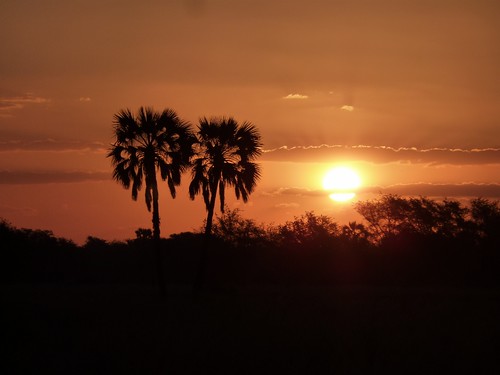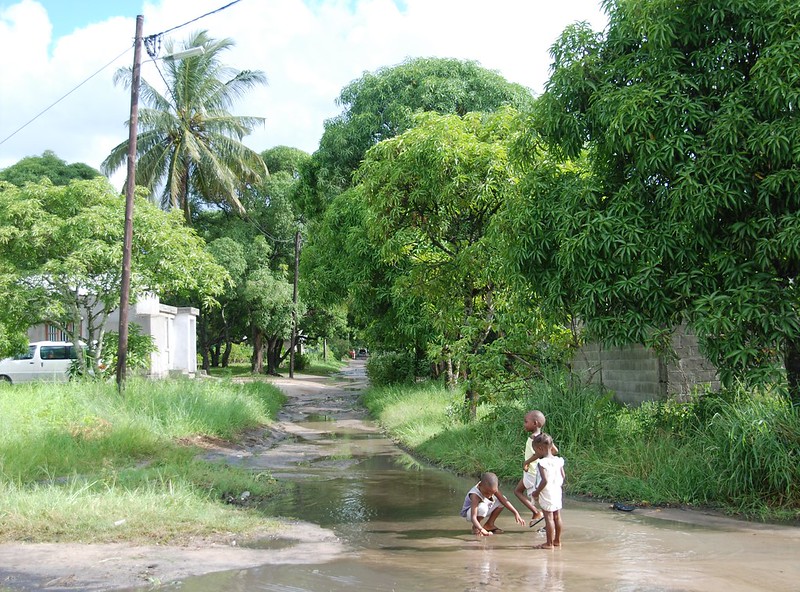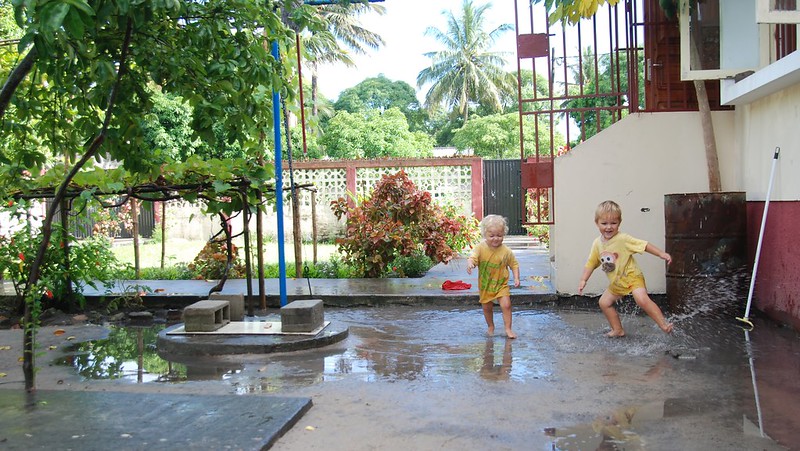 |
| Our new house |
Discovering that it’s actually cheaper to live in a $100 a night hotel than rent an average 4 bedroom house in good condition in the city, we’d begun to look in an informal residential area on the outskirts called Manga (literally meaning ‘mango’, I’d guess because there’s a lot of mango trees around). Manga has a very different feel to the city and here cultures new and old collide. People commute into the city on the minibus taxi service that run up and down the main tarmac road whilst at the same time filling their gardens with rice or maize to sell and eat.
It’s a beautiful area and we have a fantastic house with a garden full of fruit trees, bananas and vines. The only slight disadvantage of living here is that mains water is turned off each evening (we have plans to make our garden well water drinkable) and electricity is much more unreliable.
Although summer is slowly petering out, nights are still pretty hot and sticky so we all sleep in the blast of an electric fan. This overpowers much of the noise from outside, but during a power cut, the night noises reveal something of a hidden side to Mozambican life.
 Without the fans and muted behind the screeching cacophony of crickets and frogs, we sometimes hear drums: fast flowing hypnotic and repetitive rhythms beating out into the dead of night. This is the sound of the Tradição (traditional beliefs) and the drums are one of the tools of the curandeiros (traditional healers) intent on calling a spirit into conversation. His (or her) plan is not to expel the spirit out of the person he is trying to help, we’re told, (after all, where would it go?) but to find out why it is angry and tormenting the person it is residing in, and discuss with it, in its own language, just how it might be appeased.
Without the fans and muted behind the screeching cacophony of crickets and frogs, we sometimes hear drums: fast flowing hypnotic and repetitive rhythms beating out into the dead of night. This is the sound of the Tradição (traditional beliefs) and the drums are one of the tools of the curandeiros (traditional healers) intent on calling a spirit into conversation. His (or her) plan is not to expel the spirit out of the person he is trying to help, we’re told, (after all, where would it go?) but to find out why it is angry and tormenting the person it is residing in, and discuss with it, in its own language, just how it might be appeased.The drums are just one aspect of the Traditição that is alive and strong in Mozambican culture. Any exploration around the base of a prominent old tree or termite mound may reveal fetishes (gifts given to the ancestral spirits that live there). These take the form of half buried clay pots that contain the ingredients of mysterious spells: chard cloth, bones, ash etc. This is the work of the fetiseiros (witch doctors); the charms are intended to bring illness, misfortune and even death to the unfortunate victim.
Mozambicans are a fantastically warm and friendly people, but if you scratch beneath the surface you'll find a deep undercurrent of very real fear. If someone does well for themselves, if their crops or goats do a little better, if they start to make money for themselves, they fear the possibility of being cursed for it by jealous neighbours.
The challenge for anyone working in development in Mozambique is that before you can have any conversation about improving the quality of local peoples’ lives, you first need to face this atmosphere of fear. We believe this can only be achieved by a loving God who is so much bigger than fear and jealousy.


